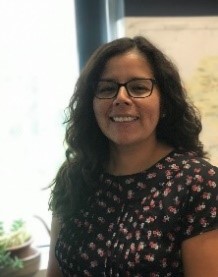Honoring National Day for Truth and Reconciliation
Today, Canadians will unite to commemorate the inaugural National Day for Truth and Reconciliation, an important step towards reconciliation with Indigenous Peoples in Canada. Now, more than ever, it is important that Canadians recognize the impacts of residential schools on Indigenous survivors, families, and communities.
Between May and July 2021, thousands of unmarked graves, mainly belonging to Indigenous children who were attending residential schools, were discovered across the country. Orange Shirt Day, also September 30, is our opportunity to witness and honor the healing journey of residential school survivors and families and commit to ongoing reconciliation.
Reconciliation means listening, learning, and acknowledging the truth, and in this spirit, Hatch colleagues from across Canada have been and are invited to honor this important day by taking time to learn from those who have been impacted by the Canadian residential school system.

Denise is a member of the Rock Bay First Nation of Northern Ontario and experienced firsthand intergenerational trauma with both her mother and grandfather being residential school survivors. Today, Denise works as an Indigenous Relations Advisor for Ontario Power Generation, where she uses her insight and experience to create collaborative relationships with Indigenous communities and organizations. She teaches and informs employees about how best to engage with Indigenous communities based on respect for the past and the desire to create a meaningful future. Her grandparents taught her respect of the land and knowledge of traditional culture, both of which fostered her greatest passion of all—fishing!
Hatch colleagues have also been invited to attend a private virtual tour of the Shingwauk Indian Residential School located in Sault Ste. Marie, Ontario, followed by a Q&A period. Hatch partnered with the Shingwauk Residential Schools Center, a cross-cultural research and educational project of Algoma University (through the technological and archival expertise of the Arthur A. Wishart Library) and the Children of Shingwauk Alumni Association, which includes former students of the residential schools, staff, descendants, family, and friends. Algoma University is located on the site (and uses some of the buildings) of the former Shingwauk and Wawanosh Indian Residential Schools.
Lastly, Chelsie Klassen, Hatch’s global director, community engagement, represented Hatch in a panel discussion hosted by Wataynikaneyap Power, a transmission company equally owned by twenty-four First Nations communities in partnership with Fortis Inc. Wataynikaneyap Power is building the Wataynikaneyap Power Transmission Project, which will connect seventeen First Nations communities via 1,800 kilometers of transmission lines and twenty-two substations in northwestern Ontario. Along with other project partners, Chelsie spoke about what Hatch has been doing with Indigenous communities to live up to Call to Action 92 from the Truth and Reconciliation Commission.
As individuals and an organization as a whole this means acknowledging the hard truths of our past and living up to the recommendations within the Truth and Reconciliation Commission report. At Hatch, we are building upon our reconciliation journey by reflecting on the stories of intergenerational survivors, touring a former residential school, and sharing resources with you to learn more about our shared history and to build a united future together.